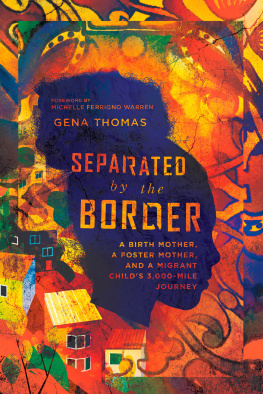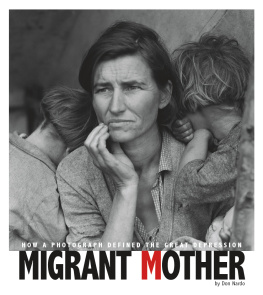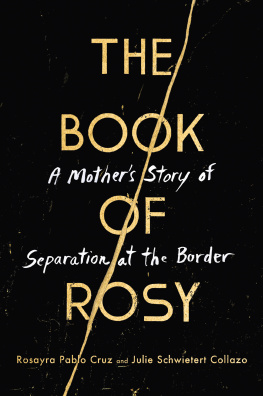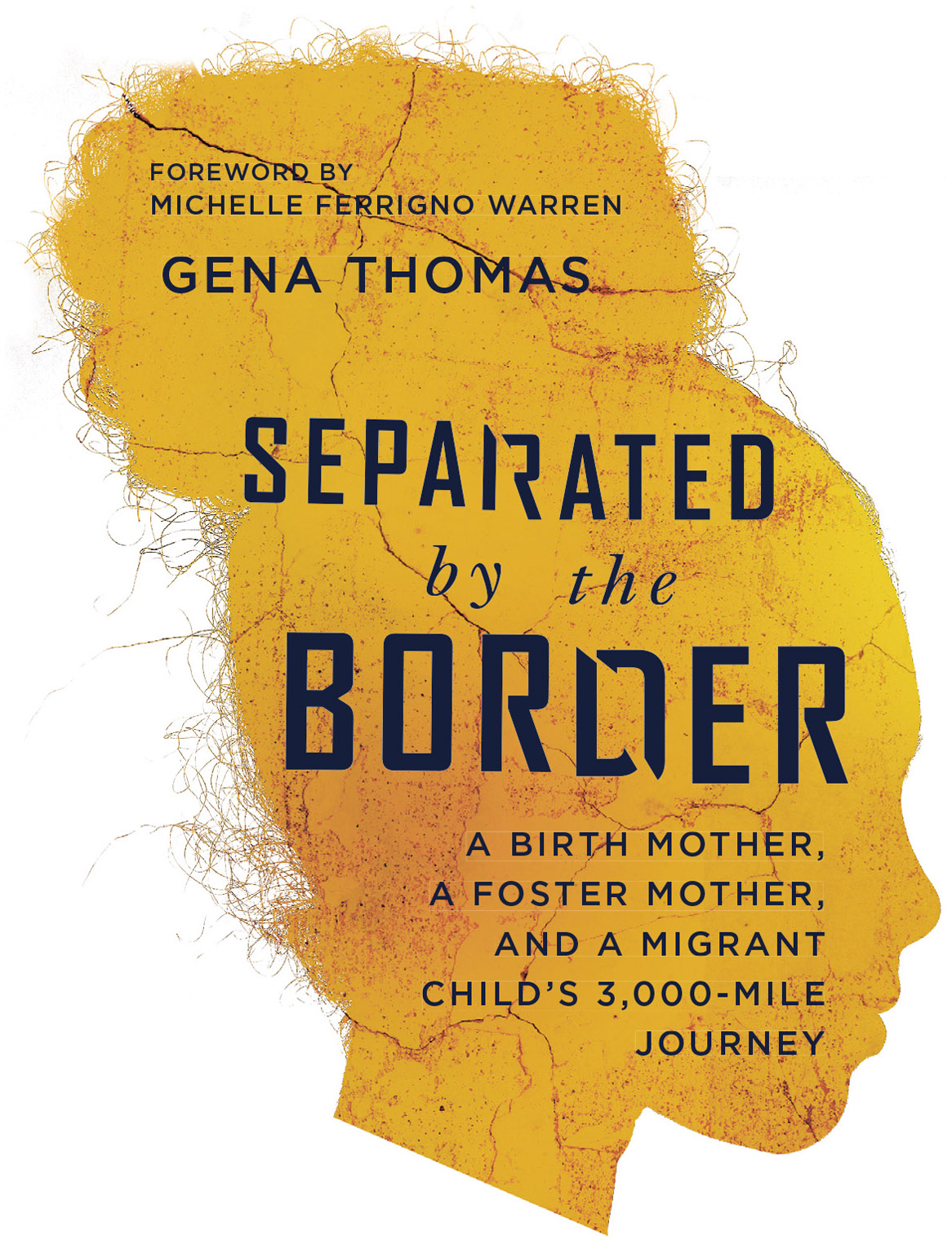Sommaire
Pagination de l'dition papier
Guide
InterVarsity Press
P.O. Box 1400, Downers Grove, IL 60515-1426
ivpress.com
2019 by Gena Thomas
All rights reserved. No part of this book may be reproduced in any form without written permission from InterVarsity Press.
InterVarsity Pressis the book-publishing division of InterVarsity Christian Fellowship/USA, a movement of students and faculty active on campus at hundreds of universities, colleges, and schools of nursing in the United States of America, and a member movement of the International Fellowship of Evangelical Students. For information about local and regional activities, visit intervarsity.org.
All Scripture quotations, unless otherwise indicated, are taken from The Holy Bible, New International Version, NIV. Copyright 1973, 1978, 1984, 2011 by Biblica, Inc.Used by permission of Zondervan. All rights reserved worldwide. www.zondervan.com. The NIV and New International Version are trademarks registered in the United States Patent and Trademark Office by Biblica, Inc.
While all stories in this book are true, some names and identifying information may have been changed to protect the privacy of individuals.
Disclaimer: The views expressed in this book belong solely to the author and do not necessarily represent the authors employer, church, or other affiliated organizations.
Words and music for Cipota de Barrio by Guillermo Anderson, copyright 2001 Costa Norte Records. All rights administered by Costa Norte Records-Honduras. All rights reserved. Used by permission.
Lucha, Poder, Esperanza by Rosa Martha Zrate, published in Ada Mara Isasi-Daz, Mujerista Theology (Maryknoll, NY: Orbis, 1996). Used by permission from Orbis Books.
Cover design and image composite: David Fassett
Interior design: Daniel van Loon
Images: hill houses illustration: Charles Harker / Moment / Getty Images
central landscape of central Mexico: Stocktrek Images / Getty Images
light blue watercolor: andipantz / Getty Images
Mexican tile (186835054): andipantz / Getty Images
Mexican tile (185224601) ivanstar / E+ / Getty Images
Mexican tile (185228896): ivanastar / E+ / Getty Image
girl profile: Hill Street Studios / Digital Vision / Getty Images
old gray wall texture: Vladimirovic / iStock / Getty Images Plus
blue water: kentarcajuan / E+ / Getty Images
maps: InterVarsity Press
ISBN 978-0-8308-5790-6 (digital)
ISBN 978-0-8308-4575-0 (print)
This digital document has been produced by Nord Compo.
FOR LUPE
Guerrera de la luz. You expanded my capacity to see, feel, hear, smell, and taste the love of Christ as I watched you fight for and persevere in your love for Julia. Motherhood will never be the same because of you. I pray your story will harvest a garden of shalom. Te quiero, hermana ma.
FOR MY MOM, TINA
You are beautiful inside and out, and Im grateful that your own story set me on a trajectory to meet Julia and Lupe. I know it hasnt been easy, but the fruit it has produced is uniquely amazing. I am confident Annas legacy lives on in the generations that have followed her through you. I love you.
FOR KATRINA
You mothered in your teaching and modeled how teachers can be lifelong influences. Thank you for your love and faithfulness, and for constantly reminding me that we were all handpicked for this.
There is a daughter I mother,
A daughter I love
But she is not mine and I am not hers,
Forever.
There is a mother she l o v e s
A mother who l o v e s her,
Forever.
For love is like water.
No human border can keep it out.
Yes, love is like water
It moves
above
in clouds
and
below
in
soil.
Yes, love is water.
FOREWORD
MICHELLE FERRIGNO WARREN
I n May 2018, stories of families being separated at the United States southern border were beginning to make headlines because of the governments new zero-tolerance policy for asylum seekers. Online outrage was small but fierce. In true Twitter fashion, those of us working closely with congressional leaders and the administration, pushing for just responses to migrants, began to get tagged. Questions like, How can this be happening? and, What can we do to make this stop? were filling my Twitter feed.
Having worked alongside immigrants for years, I was caught off-guard that so many people were taking notice and wanting change. In reality, separating families is not new, so seeing people waking up to this injustice was very welcome.
My own immigration story is one of a young Italian couple heading to the United States via Ellis Island at the turn of the twentieth century to get jobs and send money back to their family, who had fewer opportunities to support those they loved. As for many immigrants, their goodbye was permanent. In recent decades, our countrys immigration system has compounded the harm, indefinitely separating families through public policy in a myriad of ways.
Families around the world daily make hard choices for the best of those they love. They leave their families, moving for jobs to support aging parents and hungry children. They know that if they leave and succeed, none of them will be able to return home legally. Americas economic engine needs more workers than our labor markets can fill, so were quick to offer the undocumented opportunitiesmany in fields in which Americans dont want to workso our lives can move forward without economic disruption.
US citizens dont realize the trauma and separation that befall those who pick our food, cut our lawns, staff our restaurants, clean our hotel rooms. This keeps our economy going, sustaining the age-old adage We want your work; we just dont want you.
Economic pushes and pulls arent the only driver of family separation. In 2014, thousands of children came to our borders fleeing violence. Gangs had killed their family members and recruited their friends, so their only option to stay alive was to head north as unaccompanied minors. These factors are still a primary driver for many in migrant caravans awaiting the opportunity to share their fears with US officials and be granted asylum.
Family separation is also an issue for children. Those born to undocumented parents often suffer the pain and trauma of having parents deported, not to mention of living under that threat. Over eight million US citizens live with that fear for at least one family member, and according to the American Immigration Council, almost six million citizen children under the age of eighteen live with a parent or family member who is undocumented.
Then there are undocumented immigrants who were brought to the United States as children: the Dreamers. They learned the Pledge of Allegiance, were educated in our schools, and contribute to our communities. They are in every way American, yet they lack the opportunity to move their legal status forward. Many Dreamers have a temporary protected status called Deferred Action for Childhood Arrivals (DACA). This status protects them from deportation, but DACA students continue to be used as political pawns in an ugly partisan game. So they wait for the opportunity to move from mere protection to the ability to earn legal status.










